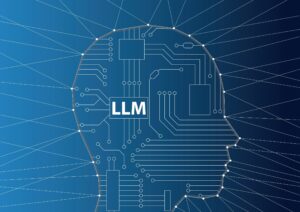
[ad_1]

(Monster Ztudio/Shutterstock)
Synthetic Intelligence (AI) is present process a profound transformation, presenting immense alternatives for companies of all sizes. Generative AI has changed conventional ML and AI as the new subject in boardrooms. Nonetheless, a latest Boston Consulting Group (BCG) examine reveals that greater than half of the executives surveyed need assistance understanding GenAI. They’re actively discouraging its use, whereas an additional 37% point out they’re in a state of experimentation however haven’t any insurance policies or controls in place. Within the following article, I’ll delve into the widespread accessibility of AI, analyze the related obstacles and benefits, and find out about methods for organizations to adapt to this ever-evolving area.
Corporations ought to align governance and accountable AI practices with tangible enterprise outcomes and threat administration. Demonstrating how adherence to those tips can profit the group ethically and relating to bottom-line outcomes helps garner stakeholder assist and dedication in any respect ranges.
Differentiating AI: Conventional vs. Generative AI
Distinguishing between conventional AI and generative AI is essential for greedy the total scope of AI democratization. Conventional AI, which has existed for many years, supplied a way to investigate huge quantities of information to outline a rating or a sample primarily based on the learnings from the information. However the solutions are at all times predictable – i.e., if the identical query is requested ten occasions, the reply would stay the identical. Creating the prediction or rating usually calls for a specialised group of information scientists and specialists to construct and deploy fashions, making this much less accessible to a broader viewers inside organizations.
Generative AI, however, represents a paradigm shift. It encompasses applied sciences like giant language fashions that may create content material in a human-like style primarily based on the large quantities of information used to coach these fashions. Along with the system with the ability to create new content material (textual content, photographs, video, audio, and many others.), it can always study and evolve to the purpose that responses are now not predictable or deterministic however will preserve altering. This shift democratizes AI by making it accessible to a broader vary of customers, no matter their specialised talent units.
Balancing the Challenges and Dangers of Fast AI Adoption
Generative AI introduces distinctive challenges, primarily when counting on prepackaged options. The idea of explainability in AI presents a big problem, notably in conventional AI techniques the place outcomes are sometimes offered as easy likelihood scores like “0.81” or “mortgage denied.” Deciphering the reasoning behind such scores sometimes requires specialised information, elevating questions on equity, potential biases stemming from profiling, and different elements influencing the result.
When discussing explainability throughout the realm of GenAI, it’s essential to look at the sources behind the reasons supplied, notably within the case of open LLMs resembling OpenAI or Llama. These fashions are educated on huge quantities of web knowledge and GitHub repositories, elevating considerations in regards to the origin and accuracy of responses and potential authorized dangers associated to copyright infringement. Furthermore, fine-tuning embeddings usually feed into vector databases, enriching them with qualitative data. The query of information provenance stays pertinent. Nonetheless, if somebody have been to enter their assist tickets into the system, they’d have a clearer understanding of the information’s origins.
Whereas the democratization of GenAI presents immense worth, it additionally introduces particular challenges and dangers. The speedy adoption of GenAI can result in considerations associated to knowledge breaches, safety vulnerabilities, and governance points. Organizations should strike a fragile steadiness between capitalizing on the advantages of GenAI and making certain knowledge privateness, safety, and regulatory compliance.
It’s crucial to obviously perceive the dangers, sensible options, and greatest practices for implementing accountable GenAI. When workers perceive the potential dangers and the methods to navigate stated dangers, they’re extra more likely to embrace accountable GenAI practices and are higher positioned to navigate challenges successfully. Taking a balanced strategy fosters a tradition of accountable AI adoption.
Accountable AI: Bridging the Hole Between Intent and Motion
Organizations are more and more establishing accountable GenAI charters and evaluation processes to handle the challenges of GenAI adoption. These charters information moral GenAI use and description the group’s dedication to accountable GenAI practices. Nonetheless, the crucial problem is bridging the hole between intent and motion when implementing these charters. Organizations should transfer past rules to concrete actions that guarantee GenAI is used responsibly all through its lifecycle.
To maximise AI’s advantages, organizations ought to encourage totally different groups to experiment and develop their GenAI apps and use instances whereas offering prescriptive steering on the mandatory controls to stick to and which instruments to make use of. This strategy ensures flexibility and flexibility throughout the group, permitting groups to tailor options to their particular wants and aims.
Constructing a Framework That Opens Doorways to Transparency
AI is a dynamic area characterised by fixed innovation and evolution. Consequently, frameworks for accountable AI should be agile and able to incorporating new learnings and updates. Organizations ought to undertake a forward-looking strategy to accountable AI, acknowledging that the panorama will proceed to evolve. As transparency turns into a central theme in AI governance, rising rules pushed by organizations just like the White Home might compel AI suppliers to reveal extra details about their AI techniques, knowledge sources, and decision-making processes.
Efficient monitoring and auditing of AI techniques are important to accountable AI practices. Organizations ought to set up checkpoints and requirements to make sure compliance with accountable AI rules. Common inspections, carried out at intervals resembling month-to-month or quarterly, assist keep the integrity of AI techniques and guarantee they align with moral tips.
Privateness vs. AI: Evolving Considerations
Privateness considerations aren’t new and have existed for a while now. Nonetheless, the concern and understanding of AI’s energy have grown in recent times, contributing to its recognition throughout industries. AI is now receiving elevated consideration from regulators at each the federal and state ranges. Rising considerations about AI’s impression on society and people are resulting in heightened scrutiny and requires regulation.
Enterprises ought to embrace privateness and safety as enablers moderately than viewing them as obstacles to AI adoption. Groups ought to actively search methods to construct belief and privateness into their AI options whereas concurrently attaining their enterprise objectives. Hanging the proper steadiness between privateness and AI innovation is crucial.
Democratization of AI: Accessibility and Productiveness
Generative AI’s democratization is a game-changer. It empowers organizations to create productivity-enhancing options with out requiring in depth knowledge science groups. As an example, gross sales groups can now harness the ability of AI instruments like chatbots and proposal mills to streamline their operations and processes. This newfound accessibility empowers groups to be extra environment friendly and inventive of their duties, in the end driving higher outcomes.
Transferring Towards Federal-Stage Regulation and Authorities Intervention
Generative AI regulatory frameworks will transfer past the state degree in the direction of federal and country-level requirements. Numerous working teams and organizations are actively discussing and growing requirements for AI techniques. Federal-level regulation might present a unified framework for accountable AI practices, streamlining governance efforts.
Given the broad implications of AI decision-making, there’s a rising expectation of presidency intervention to make sure accountable and clear AI practices. Governments might assume a extra energetic function in shaping AI governance to safeguard the pursuits of society as an entire.
In conclusion, the democratization of AI signifies a profound shift within the technological panorama. Organizations can harness AI’s potential for enhanced productiveness and innovation whereas adhering to accountable AI practices that shield privateness, guarantee safety, and uphold moral rules. Startups, specifically, are poised to play a significant function in shaping the accountable AI panorama. Because the AI area evolves, accountable governance, transparency, and a dedication to moral AI use will guarantee a brighter and extra equitable future for all.
Concerning the creator: Balaji Ganesan is CEO and co-founder of Privacera. Earlier than Privacera, Balaji and Privacera co-founder Don Bosco Durai additionally based XA Safe. XA Safe was acquired by Hortonworks, who contributed the product to the Apache Software program Basis and rebranded as Apache Ranger. Apache Ranger is now deployed in hundreds of corporations around the globe, managing petabytes of information in Hadoop environments. Privacera’s product is constructed on the inspiration of Apache Ranger and supplies a single pane of glass for securing delicate knowledge throughout on-prem and a number of cloud companies resembling AWS, Azure, Databricks, GCP, Snowflake, and Starburst and extra.
Privacera, Balaji and Privacera co-founder Don Bosco Durai additionally based XA Safe. XA Safe was acquired by Hortonworks, who contributed the product to the Apache Software program Basis and rebranded as Apache Ranger. Apache Ranger is now deployed in hundreds of corporations around the globe, managing petabytes of information in Hadoop environments. Privacera’s product is constructed on the inspiration of Apache Ranger and supplies a single pane of glass for securing delicate knowledge throughout on-prem and a number of cloud companies resembling AWS, Azure, Databricks, GCP, Snowflake, and Starburst and extra.
Associated Gadgets:
GenAI Doesn’t Want Larger LLMs. It Wants Higher Information
High 10 Challenges to GenAI Success
Privacera Report Exhibits That 96% of Companies are Pursuing Generative AI for Aggressive Edge
[ad_2]
Supply hyperlink


